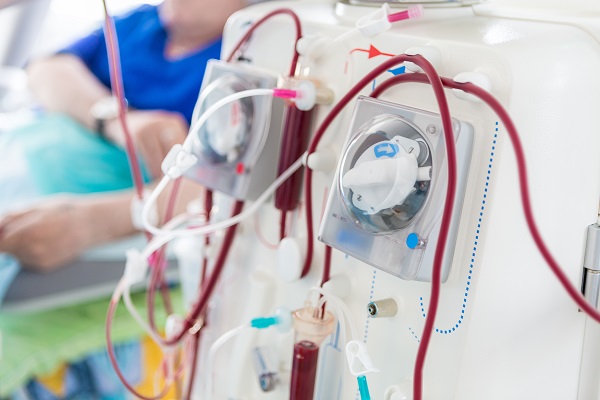What To Expect Before Receiving Dialysis

As a new kidney dialysis patient, you may feel anxious about your upcoming treatment. This is a normal response, and why we have created this article to help better prepare you for your first few sessions. This article will review everything you need to know about dialysis.
What to Know Before Your First Dialysis Session
Dialysis Process
Dialysis is a process that purifies the blood, removing wastes and excess fluid. While patients can undergo the procedure at home or in our clinic, the first few sessions will happen in the latter to ensure the patient is following rules and we can watch out for potential negative reactions.
The dialysis machine removes waste from the blood through an arteriovenous fistula (AVF) tube. The AVF consists of two thin tubes that connect an artery in the arm with a vein in the chest or neck. The patient’s blood flows through this system during treatment to remove excess fluid and waste products before returning to the body through another tube called a venous catheter located in the arms, legs, or abdomen.
Treatment Duration
The average length of dialysis treatment is 3 to 4 hours. If the patient has never received dialysis, the first procedure will likely last longer than usual due to the time the doctor takes to adjust the machine setting to be specific to them. Since patients will sit with us for a while, we encourage them to bring something to entertain them during treatment. Patients may bring:
- Phones or tablets
- Laptop
- Books
- Journal or sketch pad
- Headphones for music or movies
The amount of time a patient receives dialysis per week varies. It depends on their condition and its severity. For example, some patients may need dialysis four times a week, while others may only need it twice. The doctor will monitor the patient’s progress and make recommendations as time progresses.
Between Appointments
While there is an adjustment period after receiving dialysis, patients are free to resume their normal routines. Patients will be able to work and travel as normal. If they have a traveling schedule that conflicts with their dialysis treatment, we encourage them to let our team know so that the doctor may advise on an alternative plan for that period.
Patients will also need to follow a kidney dialysis diet. It can vary from patient to patient due to other underlying health conditions; however, the goal is to reduce the side effects resulting from dialysis.
Potential Side Effects
As the body adjusts to its new normal, it is normal for patients to experience side effects. These include cramping, nausea, headaches, drowsiness, and dizziness. Patients may also experience itching at the access site (where we place the tubes), temperature, slight confusion, or constipation. If these side effects last longer than a few days, their temperature is over 100.5 degrees, or they are experiencing bleeding at the access site, call our office immediately so that we may advise.
Learn More Today
We hope this information was helpful. Contact us today if you have any questions or concerns about your first dialysis session. Our team will be happy to answer any questions.
Request an appointment here: https://visoc.org or call Vascular & Interventional Specialists of Orange County at (714) 598-1194 for an appointment in our Orange office.
Check out what others are saying about our services on Yelp: Dialysis in Orange, CA.
Related Posts
Hemorrhoid treatment options vary depending on severity and symptoms. There are many effective ways to manage hemorrhoids, such as through lifestyle changes, over-the-counter remedies, or more advanced medical procedures. Finding the right treatment can make a significant difference in achieving lasting relief.Hemorrhoids are swollen veins located in or around the anus and rectum, with internal…
Most uterine fibroids are noncancerous, and many patients do not realize they have them. This often leaves patients confused about what could have caused their fibroids, while they also wonder what exactly fibroids are. An OB/GYN can provide clarification on a patient’s unique condition. However, in the meantime, an overview may help.Fibroids are muscular tumors…
Curious about what varicose vein treatment from a cardiologist entails? Read on to learn more. Varicose vein treatment can significantly improve your appearance as well as your life. Varicose veins are enlarged, ropey veins that typically appear on the legs and feet. These oversized veins can often cause swelling, fatigue, and pain. They can also…
Wondering when joint pain treatment is necessary? According to Healthline, joint pain refers to discomfort, aches, and soreness in any of the body's joints. There are certain signs that warrant when treatment is necessary.There are many different things that can cause someone to experience joint pain, with rheumatoid diseases being one of the more common…
